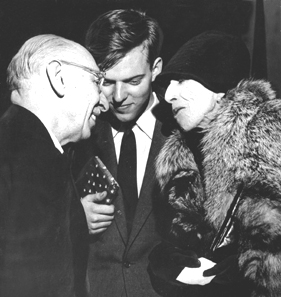 Ernest Hemingway on Writing by Larry W. Phillips
Ernest Hemingway on Writing by Larry W. PhillipsMy rating: 3 of 5 stars
Phillips puts together a collection of quotes from Hemingway's work and also from a number of letters and interviews. I am not sure Hemingway would have been happy about this book, although Mr Hemingway's fourth wife Mary Welsh Hemingway gave the editor (Phillips) permission to use the various quotes from Hemingway's major works. Phillips' major contribution is putting together Hemingway's thoughts on writing in one convenient place. Other than that, it smacks of someone getting to publish a book simply because the subject is famous. It is a very quick read and I enjoyed reading it, but I was a little disappointed that it is just a series of quotes organised thematically. Worth a read, worth keeping to refer back to, but reading about Hemingway just isn't the same as reading Hemingway.
View all my reviews
 Donate
Donate





























